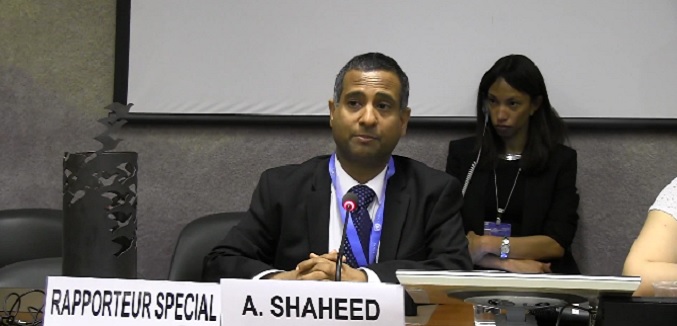A top United Nations human rights investigator on Monday demanded that Iran call off what is thought to be the impending execution of 26-year-old Reyhaneh Jabbari, who had been convicted of killing Morteza Abdolali Sarbandi, an employee of Iran’s Ministry of Intelligence and Security, under circumstances that international watchdog groups insist constituted self-defense:
Ahmed Shaheed, the U.N.’s special investigator on human rights in Iran, said Monday that the case should be re-tried because Jabbari may have acted in self-defense.
He says testimony from “reliable sources” indicates Sarbandi carried out a sexual assault against Jabbari before she stabbed him.
The controversy comes against the backdrop of a spike in Iranian executions since the summer election and inauguration of President Hassan Rouhani.
Shaheed has repeatedly called attention to that surge, and has more broadly sought to emphasize that Iran’s human rights situation has not improved under Rouhani’s government. Last October he assessed that there had been no fundamental improvements in Iran’s human rights between administrations, and again addressed the situation this past January:
“The persistent execution of individuals for exercising their rights to freedom of assembly, association, and affiliation to minority groups contravenes universally accepted human rights principles and norms,” Mr. Shaheed said.
In March he went further, insisting that despite “rhetoric and modest steps” Iran had yet to institute the reforms necessary to address “the human rights concerns raised by the General Assembly, the Human Rights Council, the UN Secretary-General, Treaty Bodies, all Special Procedures, human rights defenders and international organizations.”
Some analysts have suggested that Rouhani is actually trying really hard to reform Iran, but that hardliners are ordering executions to smear him. The theory has fallen short of winning broad assent. Skeptics have pointed out that Rouhani himself appointed Mostafa Pour-Mohammadi – a hardliner hated by reformers for having overseen the executions of literally tens of thousands of jailed dissidents in the years immediately following Iran’s 1979 revolution – to oversee the country’s Justice Ministry. Rouhani’s own history as a revolutionary-era cleric who subsequently called for the mass roundup of political dissidents has also, in this context, not gone unnoticed.
[Photo: karzar hoghoghe bashar / YouTube]




